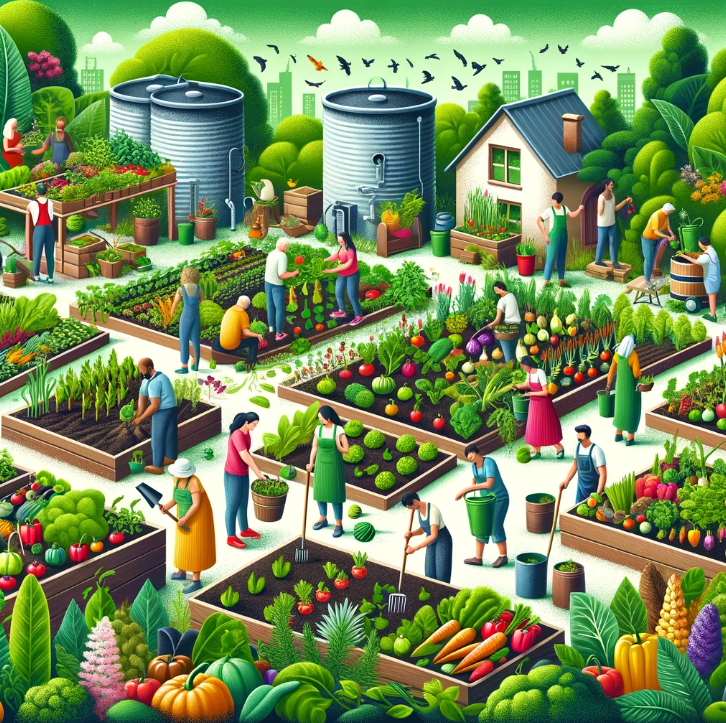Food sustainability is a pressing issue that requires urgent attention. As the global population continues to grow, the demand for food is increasing exponentially. However, the current methods of food production and consumption are depleting our natural resources and causing significant harm to the environment. It is crucial to find sustainable solutions that can nourish the planet without further depleting resources. This article explores the importance of food sustainability and highlights some key strategies to achieve it.
The Importance of Food Sustainability
Food sustainability is essential for several reasons:
- Environmental Impact: The current food system contributes to deforestation, greenhouse gas emissions, and water pollution. Sustainable practices can help mitigate these environmental issues.
- Resource Depletion: Traditional farming methods often rely on intensive use of water, land, and energy. These resources are finite and must be conserved for future generations.
- Health and Nutrition: Sustainable food production promotes healthier diets by emphasizing fresh, locally sourced, and organic produce. This can lead to improved public health and reduced instances of diet-related diseases.
Strategies for Food Sustainability
Several strategies can be implemented to achieve food sustainability:
1. Sustainable Farming Practices
Adopting sustainable farming practices can significantly reduce the environmental impact of agriculture. These practices include:
- Organic farming: Avoiding synthetic pesticides and fertilizers, organic farming promotes soil health and biodiversity.
- Agroforestry: Integrating trees and crops on the same land can improve soil fertility, conserve water, and sequester carbon.
- Conservation agriculture: Minimizing soil disturbance, maintaining crop diversity, and using cover crops can enhance soil health and reduce erosion.
2. Efficient Food Supply Chains
Creating efficient food supply chains can minimize food waste and reduce the carbon footprint of the food industry. Some effective strategies include:
- Reducing food loss and waste at every stage of the supply chain, from production to consumption.
- Investing in infrastructure and technology to improve storage, transportation, and distribution processes.
- Promoting local and regional food systems to reduce the distance food travels, thereby reducing emissions from transportation.
3. Consumer Education and Behavior Change
Empowering consumers with knowledge about sustainable food choices can drive positive change. Some initiatives include:
- Providing information on sustainable farming practices and certifications to help consumers make informed decisions.
- Promoting plant-based diets and reducing meat consumption, as animal agriculture has a significant environmental impact.
- Encouraging home gardening and composting to reduce food waste and promote self-sufficiency.
Food sustainability is crucial for nourishing the planet without depleting resources. By adopting sustainable farming practices, creating efficient food supply chains, and promoting consumer education and behavior change, we can achieve a more sustainable food system. It is essential for governments, businesses, and individuals to work together to implement these strategies and ensure a healthier and more sustainable future for all.

































+ There are no comments
Add yours